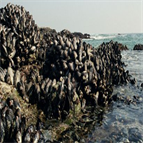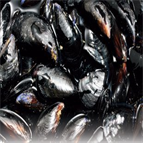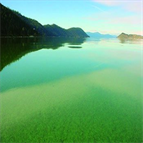Find methods for your needs
Refine by Feature
Displaying 1-4 of 4 results for Tag: Mussel
AN1025: Simultaneous Extraction of PAHs and PCBs from Environmental Samples Using Accelerated Solvent Extraction
Instrument Type: Automated Sample PrepAccelerated solvent extraction is an established technique to efficiently extract contaminants in solid and semisolid sample matrices with less solvent and time. Polyaromatic Hydrocarbons (PAHs) and Polychlorinated Biphenyls (PCBs) are considered toxic and carcinogenic, and therefore classified as persistent organic pollutants (POPs). Typically, PAHs and PCBs are extracted separately, using different solvent combinations. Our study demonstrates extraction of PAHs and PCBs using a single method from spiked mussel and from a soil spiked with a standard reference materials (SRMs).
Non-Targeted Screening of Lipophilic Marine Biotoxins by Liquid Chromatography-High-Resolution Mass Spectrometry
Instrument Type: LCMSMarine biotoxins are produced by naturally occurring microalgae, whose populations can increase significantly under certain environmental conditions to form a harmful algal bloom (HAB). Marine biotoxins pose a significant food safety risk when bioaccumulated in shellfish that are ingested by humans. We describe the use of the Thermo Scientific Exactive benchtop LC/MS system powered by Orbitrap technology for screening lipophilic marine biotoxins commonly found in shellfish. The method was optimized using a standard mixture of marine biotoxins, and then applied to a mussel tissue extract.
Determination of Lipophilic Marine Biotoxins in Molluscs by LC-MS/MS using Offline Extraction
Instrument Type: LCMSMSMany countries have had to deal with the death of wild animals and domestic livestock due to toxic microalgal blooms in both marine and fresh water. Poisoning in humans has been associated with the direct consumption of shellfish, fish, or toxin-contaminated water. The foods most frequently involved in episodes of human poisoning are represented by bivalve molluscs. In accordance with current European regulations, we propose a quick, selective, sensitive, and accurate analytical method for the determination of lipophilic marine biotoxins in bivalve molluscs using an LC-MS/MS method.
Validated Method for the Analysis of Lipophilic Marine Biotoxins in Bivalves by Liquid Chromatography-High-Resolution Mass Spectrometry
Instrument Type: LCMSA harmful algal bloom is a serious environmental problem that results when the population of microscopic algae in a water system rapidly increases. The algae have the ability to produce marine biotoxins (MBTXs), which are dangerous to humans and other aquatic life. These biotoxins can accumulate in filter-feeding bivalve mollusks and, in turn, pose significant food safety risks to humans who ingest the shellfish, including gastrointestinal illnesses or neurological disorders. We describe a UHPLC with HRMS/MS method that delivers excellent results in the quantitative analysis of MBTXs.




